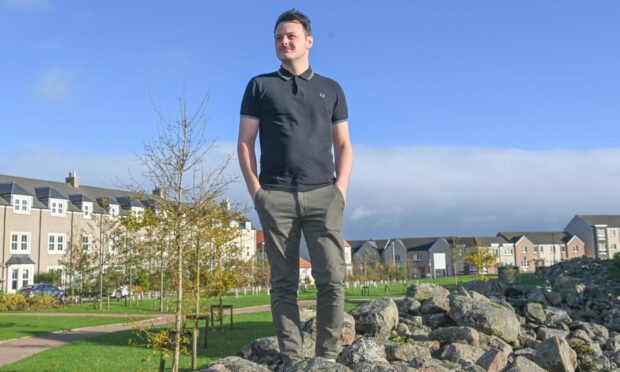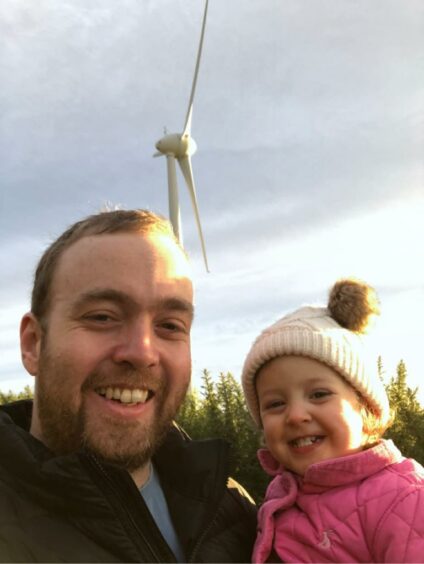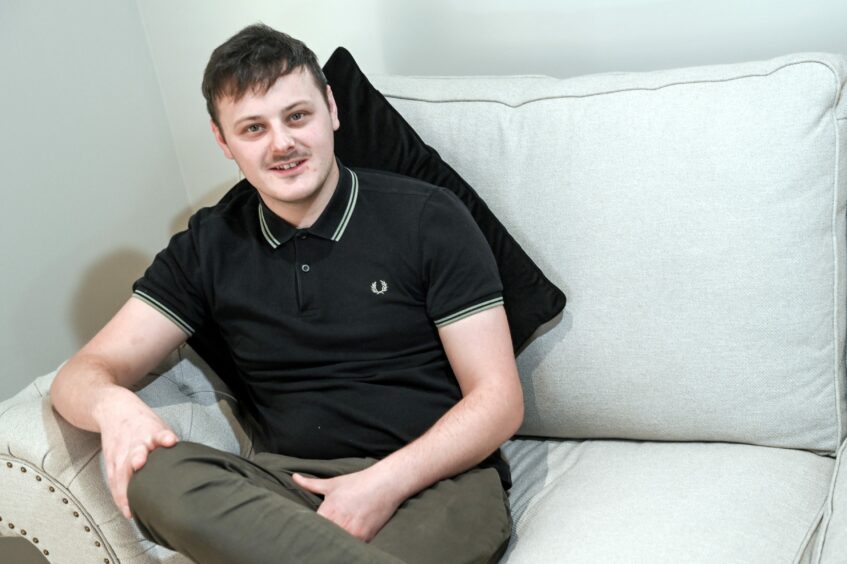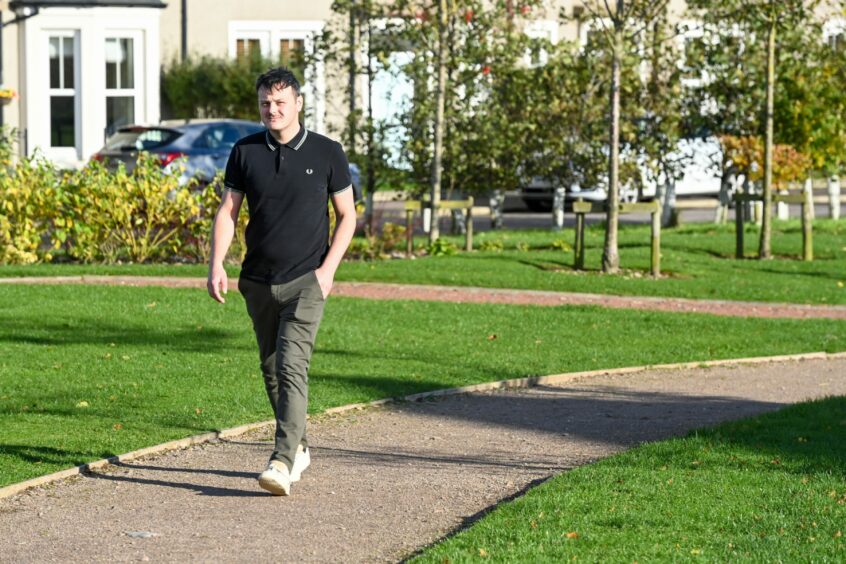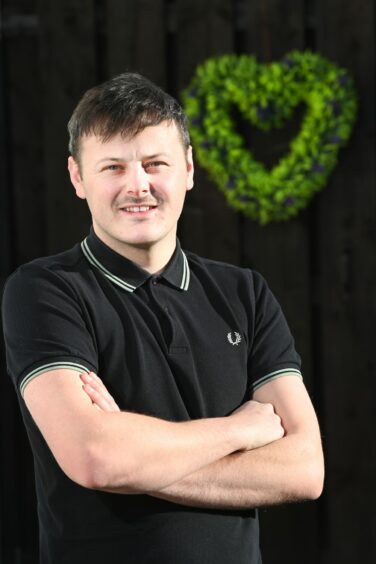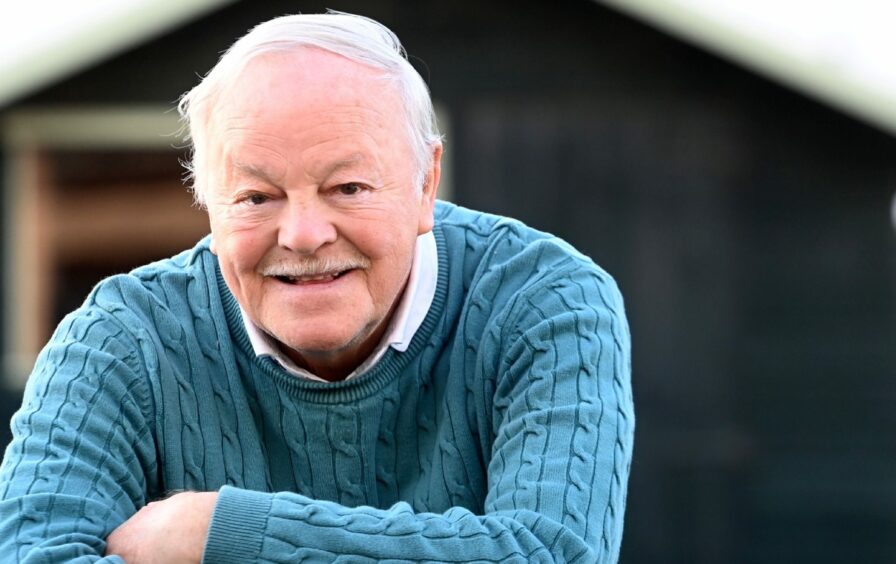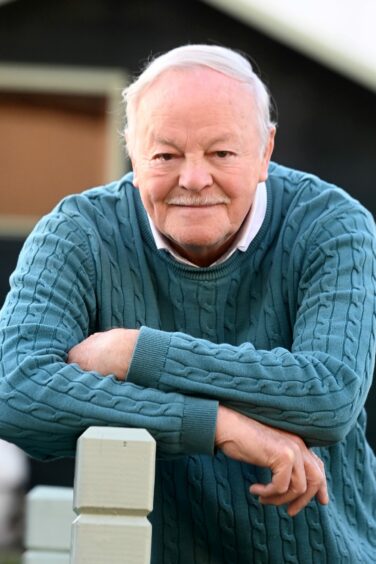Handlebar, walrus or pencil style. You might notice that the men in your life suddenly start sprouting facial hair over the coming weeks.
No, it’s not a protest against shaving, but rather the global movement which is Movember.
Although Movember is now the leading men’s health charity, it originated in 2003 when Travis Garone and Luke Slattery asked people to bring back the moustache, in Melbourne, Australia.
Thirty people answered the hairy call, and a campaign concerning men’s health emerged.
Fast forward to today, and their message could not be more poignant, with the charity aiming to reduce the number of men dying prematurely by 25% – with a deadline of 2030.
Campaigners believe our fathers, brothers, partners and sons are facing a health crisis.
Globally, on average, one man dies by suicide every minute of every day.
Three out of four suicides in the UK are by men, and last year in Scotland that figure stood at 71%.
Alongside mental health and suicide prevention, Movember is also tackling testicular and prostate cancer.
One in eight men in the UK will be diagnosed with prostate cancer in their lifetime, while testicular cancer is the most common cancer for young men.
The issues facing men’s health are clearly complex, from reluctance to go to the GP to breaking down the stereotype of “manning up” and getting on with things.
your life spoke to three men across the north-east who have battled demons, be that through a mental or physical diagnosis.
This is their story.
What does mental health look like?
How do you define a dark place where the mind wanders, and a heavy cloud descends?
For 34-year-old Joe Hanlon, the signs first appeared in childhood, although he had no idea anything was wrong until around four years ago.
It took a series of panic attacks many years later for Joe to realise that mental ill-health was always there in the background.
From childhood bullying to fear of lateness, it would take many years before Joe was not only listened to, but diagnosed and given life-changing help.
He is a proud father to his four-year-old daughter, and loving husband to his childhood sweetheart.
Joe also lives with anxiety and depression, and believes that if he can help just one person by telling his story, then it has been worth it.
Finding the right support
Working 70-hour weeks was once the norm for Joe, who is now a principal electrical engineer.
He believes that poor mental health is rife in the oil and gas industry, and research shows that workers suffer from anxiety and depression more frequently than the general population.
“Around five or six years ago, I thought my mental health was OK,” says Joe.
“But looking back, I can see the beginning.
“At the time we thought we might not be able to have a family, due to my wife’s mental health and medication she was taking.
“So the thought of a baby was shelved, as there were no studies either way which showed if medication could have any impact.
“Around the same time was the oil crash, so there was that running concurrently with the idea of starting a family – and whether or not we could even afford it when I was in and out of consultation.
“I was pulling 70-hour weeks, working on this multi-billion-dollar project. One night I came across an issue, although it wasn’t my doing. At the time it felt like I should have identified it earlier.
It must have been 11pm and I was still working, I had a panic attack.
“When I told work about the problem the next day, they were full of praise that I had spotted it and I felt so daft.”
Joe went to his GP as he was also suffering from heart palpitations. He believes his concerns were brushed off, before he was seen by a junior doctor.
“I was in floods of tears, all this stuff that I had never thought was a problem,” says Joe.
“Around the same time I had a cancer scare having gone for an offshore medical, so there was a lot going on.
I was put on tablets and felt immediately better. I think there is a sliding scale between anxiety and depression.
Looking back, I didn’t know at the time that a sore jaw could be a symptom of anxiety.
“I would panic if I was late for school, and I was also bullied because I was top of the class and considerably taller than everyone else.”
Joe has never found talking about mental health to be an issue, and taking medication gave him back control of both his personal and professional life.
Having stopped the tablets, Joe phoned his GP convinced he was having a heart attack.
“A lot of my anxiety is health-based and the fear of death,” he says.
Starting a family
“That actually improved once my daughter was born, even though she was born prematurely.
“Once I met her, I felt I had contributed something positive in life and that if I was to die, it would not be quite so bad.
“Parenthood is one hell of a challenge, and the nurses in the neonatal are the peak of humankind.
I remember singing to my daughter in the incubator and I was in floods of tears. There were all these alarms going off, and a nurse still took the time to come and talk to me.
“I was the first person to change my daughter’s nappy and tube feed her, it made me feel that I could be a dad.”
During lockdown, Joe reached a place mentally “without realising it” and considered taking his own life.
Again, he got help, and believes “meaningful change” is taking place in the oil and gas industry.
Change in the oil and gas industry
“There has been a couple of webinars with Man Chat, and there is a number we can call at work where we can talk anonymously,” says Joe.
“Whereas previously I didn’t want my line manager to know because I believed it would impact me negatively at work.
I don’t think it’s my duty to speak out now. But if I can help one person, well I think I am obliged to do that.
“There is no reason not to talk now, this is not the 1800s, and ever since I started speaking about mental health, I realised how prevalent it is in society.
“On a personal level, I think the most important thing is awareness. Of being aware when you are not PK.”
Nathan Binnie, diagnosed with testicular cancer age 23
Twenty-nine-year-old Nathan Binnie echoes this sentiment, having put off going to the GP for one year after finding a testicular lump.
Nathan, who lives in Cove with his partner, Lewis, and the couple’s sausage dog, Arlo, was only 23 when he was diagnosed with testicular cancer.
He went on to receive the all-clear after having his testicle removed, and is now healthy and happy running his own air con business.
That does not mean to say that his diagnosis did not impact him mentally however, and Nathan hopes that by telling his story, he can encourage other people to go to their GP.
“I had found the lump one year prior to going to the GP,” says Nathan.
“I kept telling myself that it would just go away and I didn’t need to go and get checked.
I think there was a bit of embarrassment there, and I had never met anyone who had testicular cancer.
“When I finally went to the GP, I was told it was best to get myself booked in for a scan.”
Given the all clear
Nathan was seen at The Albyn Hospital in Aberdeen in a bid to avoid joining a lengthy waiting list, but the scan and blood tests gave nothing away.
“It wasn’t very clear what was going on, but I had my testicle removed and a prosthetic fitted at the same,” says Nathan.
“It was then around a four to five week wait.”
The call came on December 23, where Nathan and his relieved family were told that although he had in fact had testicular cancer, the disease had not spread and no further treatment was needed.
“It was a type of tumour called an epidermoid which is very rare. It accounts for only one to two percent,” says Nathan.
“Everyone had been down in the dumps prior to getting the news. Then my family, my mum in particular, sprung into action.
“It was a case of getting Christmas sorted.”
Mental health matters
Although it was the best news Nathan could have hoped for, he believes his struggles with mental health can be linked back to his experience.
“I remember I was actually raising money for Movember, and the irony was that I had a potential issue myself that I didn’t want to get checked,” he says.
I had a lot of anxiety in the run up to going to the GP, I think because I was scared I would be told that I had six months to live.
“It was my mum who noticed a change in me after diagnosis. I was in Newcastle working 16-17 hour days.
“I was put on anti-depressants, and after changing tablets I found they really helped.
“I still have my wobbly days, but previously I would just sit in my bedroom. My friends were sad when I told them I was on medication, because they had no idea.
“I had put a smile on, but they’ve been incredibly supportive.”
Nathan is now determined to raise awareness both of mental health and testicular cancer, and appeared in Brave in 2018.
The catwalk event saw men with a cancer or haematology diagnosis take to the stage in a fashion show organised by Friends of Anchor, which also hosts Courage on the Catwalk.
“It was the best experience I’ve ever had,” says Nathan.
“Fifty percent of us are still in touch and meet up regularly, whether we’ve recovered or are still going through treatment.
You never really see a bunch of guys in the pub talking about any issues. But what I would say is that it is your health and your life.
“Men need to know how to check their testicles properly, and what to look out for.
“Who knows what might have happened if I hadn’t gone and got checked.
“If I can bounce back from the dark, so can you.”
Billy Colbert, prostate cancer survivor
When Nathan was in hospital for his operation, he had a very special visitor thanks to his grandad, Billy Colbert.
The retired offshore construction supervisor suffered a heart attack, and was determined that he would still pay a visit to Nathan.
The pair both recovered well, until Billy was diagnosed with prostate cancer three years ago.
He believes that he comes from a generation of men who brush off health concerns, but with three grandsons he is hopeful that times are changing.
Nearly one in two men in Scotland is likely to get prostate disease at some stage in their lifetime, and one in 10 men is at risk of prostate cancer.
Prostate Scotland has been running since 2006, and provides various avenues of support for men with prostate cancer and their families.
The charity’s COMPASS Project offers specialists for face-to-face, phone or video-call appointments, to help men navigate prostate cancer. Maggie’s Highlands has also come on board, with a series of Living Well with prostate courses.
Cancer diagnosis
For Billy, he was able to get help when symptoms arose.
“I noticed I was urinating a lot, so I went to the doctor,” says Billy, 76, who lives in Cove.
“A biopsy of my prostate was taken, and I had to wait three months for the results.
The consultant came straight out with it and said I had cancer
Billy underwent 37 sessions of radiotherapy, followed by injections to reduce testosterone.
“It’s the testosterone which feeds the cancer,” says Billy.
“I found the injections very tiring. The only way I can describe it, is that it zaps your energy and takes all your strength away.
“I get my blood checked every three weeks, and everything seems to be OK now.
“I was in it for the long haul though. When I was having radiotherapy, I met lads who had no symptoms at all, yet had prostate cancer.
“I had never even heard of it before I was diagnosed.”
Billy believes that more awareness needs to be raised, with men over 60 targeted.
“Even if you don’t have symptoms, get checked,” says Billy.
“I think older men just think to themselves, oh it’ll be alright.
There should be some kind of screening. It’s a harrowing disease, and in my case it was just outside the prostate.
“That’s when the problems start. Always go to your GP, it’s worth it.”
Visit Movember for more information. If you are struggling with mental health, contact Samaritans by phoning 116 123, or Man Chat on Facebook @ManChatABZ
